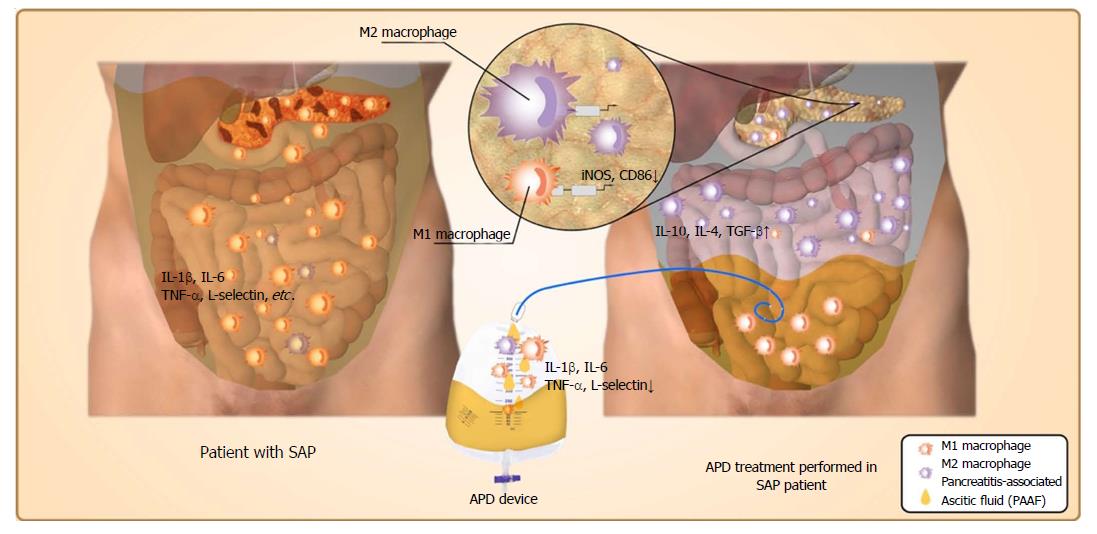Copyright
©The Author(s) 2018.
World J Gastroenterol. Dec 7, 2018; 24(45): 5131-5143
Published online Dec 7, 2018. doi: 10.3748/wjg.v24.i45.5131
Published online Dec 7, 2018. doi: 10.3748/wjg.v24.i45.5131
Figure 6 Possible mechanisms responsible for the beneficial effects of abdominal paracentesis drainage on severe acute pancreatitis.
Once severe acute pancreatitis (SAP) occurs, the inflammatory cells are activated following acinar cell injuries and exudate full of pro-inflammatory mediators collects in the peritoneal cavity, which can polarize the peritoneal macrophages (PMs) towards the M1 phenotype and lead to the overexpression of pro-inflammatory mediators by PMs. By removing the pancreatitis-associated ascitic fluids, abdominal paracentesis drainage (APD) could improve the inflammatory environment of the peritoneal cavity, thus promoting M2 polarization of PMs in the peritoneal cavity. Meanwhile, APD could also promote M2 polarization of macrophages in pancreatic tissues. These events could upregulate the expression of anti-inflammatory cytokines, which ultimately ameliorate pancreatic injury. APD: Abdominal paracentesis drainage; SAP: Severe acute pancreatitis.
- Citation: Liu RH, Wen Y, Sun HY, Liu CY, Zhang YF, Yang Y, Huang QL, Tang JJ, Huang CC, Tang LJ. Abdominal paracentesis drainage ameliorates severe acute pancreatitis in rats by regulating the polarization of peritoneal macrophages. World J Gastroenterol 2018; 24(45): 5131-5143
- URL: https://www.wjgnet.com/1007-9327/full/v24/i45/5131.htm
- DOI: https://dx.doi.org/10.3748/wjg.v24.i45.5131









